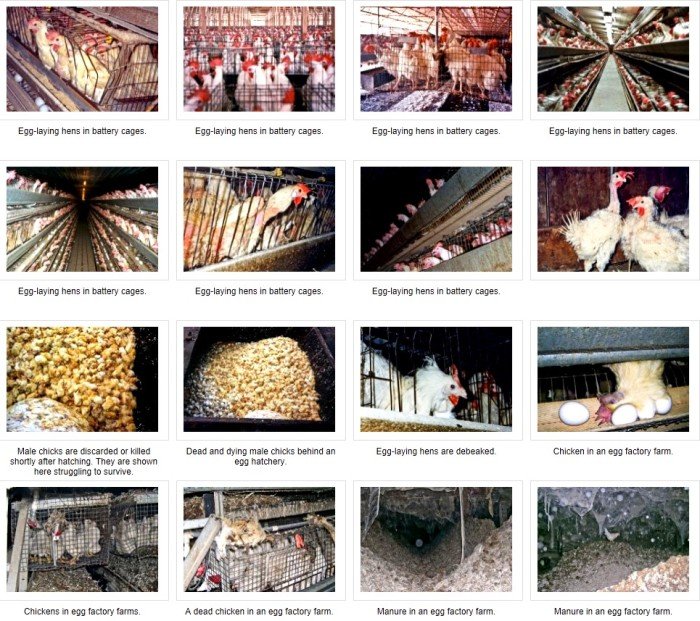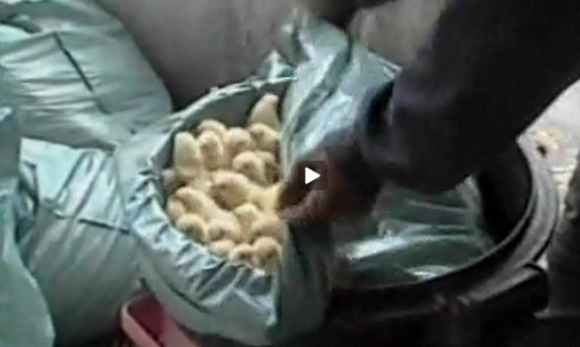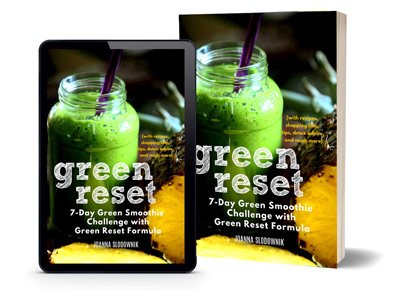People usually discuss eating eggs solely from the health perspective. There are those who have arguments pro and those who are against. Health is a complicated subject, and I’m not going to discuss it here.
What I want to talk about is the subject most people don’t know about or prefer not to know.
Please, don’t take it as judgment or criticism. I’ve been one of these people who prefer not to think about what’s going on behind the doors of factory farms for most of my life. I’ve only been vegetarian since May 2012, and vegan since July 2012, so I’m in no way judging  anyone.
anyone.
But, as I’m learning more and more about the subject, I’m increasingly appalled and horrified by what is going on meat and dairy farms around the world.
Most people have no idea when they have an egg how it’s connected to cruelty.
And if anybody has an idea about factory farming, they rarely make the connection between dairy and eggs, because they think the animals aren’t being killed. That is why I believe it’s really important to get this information out, because egg farms are some of the most abusive enterprises in terms of animal cruelty.

People think that eggs are an innocent byproduct of chickens. They have this imaginary picture in their minds that hens are just running around on the open pastures, and come back to a big red barn at night to lay eggs, but that’s just not the case.
In fact, 95 percent of the eggs in the supermarket stores come from birds that are kept in cages, which are lined up in rows, stack up on each other, inside huge windowless warehouses. Female chicks have their beaks ground off with a hot blade at 1 or 2 days old. Birds kept in these cages cannot walk, spread their wings, roost, or engage in any natural behaviors during their lifetime.
They are egg laying machines who are routinely abused, often sick and starved. And when their egg production declines, which is usually at about two years of age, they are simply killed. These birds end up so spent that the meat can only be used to make soup, chicken pies, and pet food. They are ripped out of their cages by their fragile wings and many of them are thrown in the kill carts and gassed with CO2, which is extremely painful. The rest of the hens are in such a bad shape by the end that they are beaten to death, or thrown live into wood chippers.
Have you ever wondered what happens to all the male chicks on the egg farms?
People often they think they are used for meat – at least that’s what I thought.
But that’s not at all what happens.

What happens with all the male chicks at these facilities is truly horrific. Males are not useful to the egg factories, since males don’t lay eggs and the egg laying breed will not grow large fast enough to be profitable for meat so they are deemed a byproduct by the egg industry, so they are disposed of within the first two days of hatching.
Baby male chicks are routinely disposed of in one of two ways: Either they are thrown into dumpsters full of other baby chicks, left to suffocate, or they are put, live, through meat grinders to be fed to other livestock.
The “Mercy for Animals” investigation in the largest hatchery for egg laying chickens discovered that these male chicks are thrown into grinding machines while they are still alive. This is the fate of over 200 million male chicks every single year.

http://www.farmsanctuary.org/photos/factory-farming/eggs/
What About “Cage-Free” or “Free-Range” Eggs?
Some of us who are aware of this still want to eat eggs so they buy eggs that they think cruelty free. I used to buy those eggs, hoping I’m doing a good thing.
In a lot of cases we are being fooled. There are a lot of labels that are thrown around regarding eggs. The most common is “United Egg Producers Certified,” which is on about 90% of eggs. This is a trade organization that represents 95 percent of factory farmers. They are PR organization to a large extent. If you see that label on an egg carton, it’s essentially a mark of cruelty. This means that these eggs come from an egg factory farm, where chickens are kept in cages where they cannot even spread their wings.
The other labels that you will see are “Cage Free” and “Free Range.” These mean that these birds are not kept in cages, but usually in tens of thousands of birds are kept in windowless warehouses where these birds are very intensively confined and cannot engage in many of their natural behaviors, they are not given access to the outdoors, and the male chicks are still killed because they are not profitable, and the birds have their beaks cut with a hot blade to prevent them from pecking with other birds in these overcrowded conditions.
When applied to eggs, the term “free-range” has no legal definition in this country. The term “cage-free” doesn’t mean cruelty-free. It does not ensure any humane treatment nor does it imply access to the outdoors. These labels indicate that these birds are not kept in cages, but in windowless warehouses where tens of thousands of birds are very intensively confined and cannot engage in many of their natural behaviors. Wings, beaks, and feet are still routinely clipped. Even hormone- and antibiotic-free labels mean nothing in terms of how the chickens are treated. The only certifications that pertain to animal treatment are “Certified Humane Raised and Handled” (beware of imposters; those exact words must be printed on the label) and “Certified Organic,” which also upholds relatively humane standards.
This is an extremely cruel industry and most people are completely in the dark about what’s taking place. Because of the marketing on the egg cartons by the egg industry. This imagery of free roaming chickens with big red barn in the background on egg cartons from hens that never even touched the ground or saw sunlight.
So let’s just eliminate eggs from our diet – it’s really easy. Cooking and baking is easy.
Over 95 percent of eggs sold in the United states come from birds confined in wire battery cages so small they can hardly move. They are egg laying machines who are routinely abused, often sick and starved. These birds end up so spent that the meat can only be used to make soup, chicken pies, and pet food. The rest of the hens are in such a bad shape by the end that they are beaten to death, gassed, or thrown live into wood chippers.
Fowl Play Movie Trailer: Why using egg substitutes is a moral imperative of our time
Fowl Play Movie: see the trailer, watch the movie
Egg industry is probably the most abusive industry on the face of the planet. An egg is – calorie per calorie – probably the cruelest food that we can consume.
Also, watch this Mercy for Animals footage.
What can be used as a substitute for eggs in a recipe?
Read this post for tips on how to substitute eggs in baking and pancake recipes.
Questions? Comments? Suggestions?
If you have a favorite recipe, why not submit it here in the comment section of this blog for others to enjoy too!
I also welcome any comments, questions and suggestions. Thanks!


